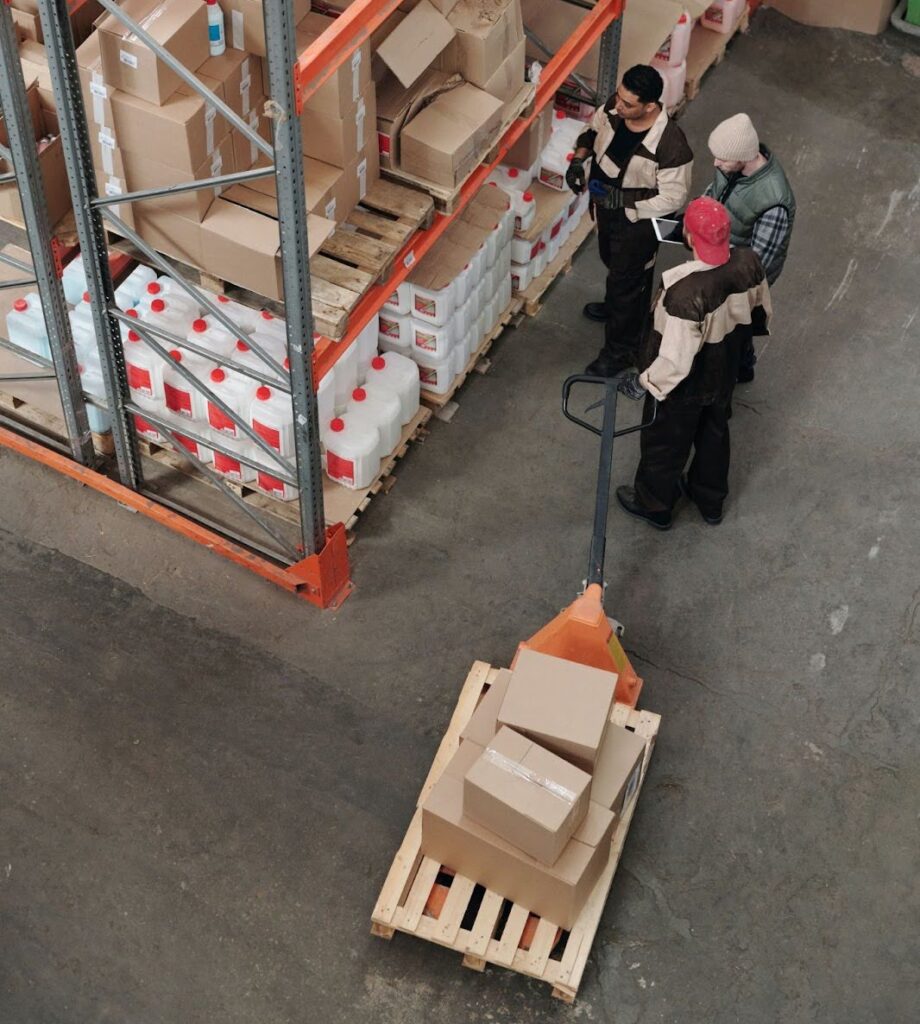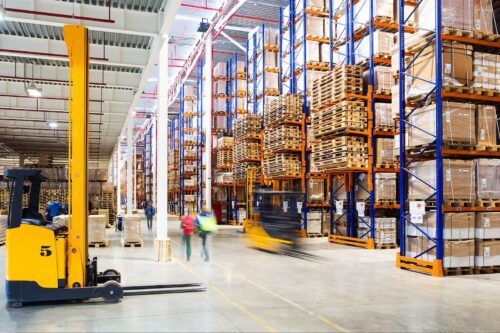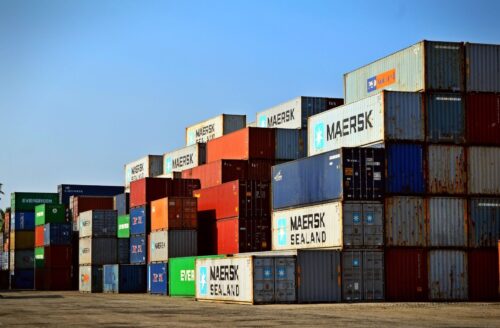What Is 3PL? Meaning, Benefits, and Challenges

In today’s fast-paced business world, efficient supply chain management is critical to success. That’s where third-party logistics (3PL) comes into play.
This blog post will include a 3pl definition to explain what 3PL means (some people refer to it as 3rd party logistics, 3 party logistics, or even 3 pl as well as contract logistics providers or contract logistics company), the benefits of partnering with a 3PL provider, the advantages of 3pl, the need for 3pl trucking, and the potential challenges that may arise from outsourcing your logistics operations to a third party logistics company or contract logistics provider. If you’re wondering “what’s 3pl” or looking for a 3pl association or other professional organization for third party logistics professionals, supply chain management professionals, and the supply chain management community, look no further. This article will also examine third party logistics business model, 3pl delivery orchestration, and how best to approach the search for a 3pl partner or 3pl contract logistics provider.
What Is 3PL?
Third-party logistics, or 3PL, refers to companies that specialize in managing various aspects of a business’s supply chain—or who manage a company’s entire supply chain. This can include inventory management, warehousing, order processing, reverse logistics, shipping and receiving services and distribution center management 3pl, as well as other logistical support and technology such as warehouse management software, 3pl system, 3pl warehouse system, or fulfillment service. 3PLs are staffed by logistics professionals who offer contract logistics services.
One common example of a 3PL service is when an online retailer partners with a fulfillment center to handle their inventory storage and order processing needs. The 3PL company not only provides warehouse space in the warehousing industry but also manages the process of picking individual products for each customer’s order and packing them for shipment.
In addition to ecommerce fulfillment services, 3PL providers and contract logistics companies also work closely with freight transportation companies. They coordinate everything from choosing carriers and negotiating rates to scheduling pick-ups and deliveries while overseeing optimized routing strategies – all aiming towards time-sensitive shipments reaching customers quickly without compromising cost-effectiveness.
Fulfillment Companies
Fulfillment companies play a crucial role in the world of third-party logistics (3PL) and contract logistics, offering a comprehensive range of services that cater to eCommerce businesses. They specialize in handling various tasks like order processing, shipping, and receiving on behalf of their clients.
One notable example of a fulfillment company is Fulfillment by Amazon (FBA), which provides storage, packaging, and shipping services for sellers using the Amazon marketplace.
By outsourcing these logistical aspects to FBA or other reputable fulfillment companies, businesses can focus on core operations such as marketing and product development while simultaneously reaping benefits like reduced operational costs and increased control over logistics. Many companies prefer to use a 3PL warehouse than to purchase their own warehouse.
Freight Companies
Freight companies are critical in the 3PL ecosystem by providing transportation services for businesses. These companies specialize in moving goods from one location to another, whether it be through land, ocean, or air transport.
In addition to handling the actual shipping process, freight companies often offer value-added services such as customs clearance and shipment tracking. For example, UPS and FedEx are well-known global freight carriers that also provide end-to-end supply chain solutions for ecommerce businesses.
Both asset-based and non-asset-based freight companies collaborate closely with 3PLs to provide transportation services within the broader logistics framework. They work together to understand the specific logistics requirements of clients, coordinate transportation modes, optimize routes, and manage the movement of goods from origin to destination.
Collaboration between freight companies and 3PLs involves
- Service Agreements: 3PLs establish contracts and service-level agreements (SLAs) with freight companies to ensure that transportation services meet the required standards, including on-time delivery, cargo safety, and tracking capabilities.
- Communication and Visibility: Freight companies and 3PLs maintain effective communication channels and information-sharing systems to provide real-time visibility into shipment status, address any issues promptly, and keep clients informed about the progress of their shipments.
- Performance Monitoring: 3PLs assess the performance of freight companies based on metrics such as on-time delivery, transit times, cargo damage, and customer satisfaction. This allows them to evaluate the effectiveness of transportation services and make necessary adjustments or improvements.
In summary, freight companies within the 3PL ecosystem are essential partners.
Warehousing Companies
Warehousing companies also play a vital component of the supply chain, and they play an essential role in 3PL services. These service providers are responsible for managing inventory levels, overseeing the movement of goods within their warehouses, and ensuring timely order fulfillment.
A warehouse 3PL can provide businesses with access to advanced technology and infrastructure that may be otherwise impossible or cost-prohibitive to achieve in-house. What is 3pl warehouse management system? This can lead to increased efficiency in supply chain management and reduced costs associated with warehousing operations.
Overall, using a warehouse 3PL (many are part of the international warehouse logistics association) provides several benefits for businesses seeking more efficient ways to manage their logistics operations.
How 3PL Works

Learn how 3PL streamlines the logistics process, from order receipt to delivery, and the role of technology in making it more efficient.
3PL vs. Freight Forwarding
While 3PL and freight forwarding may seem similar, they serve different functions in logistics management. A 3PL is responsible for all aspects of the supply chain, from warehousing to transportation to order fulfillment.
A freight forwarder, on the other hand, focuses solely on moving goods between two locations.
For example, imagine a company manufacturing clothing wants to ship their products from China to the United States. They would hire a freight forwarder who specializes in international shipping to transport their goods across oceans.
Both 3PLs and freight forwarders play an important role in managing logistics needs but serve different purposes within the supply chain industry.
The Process of 3PL: From Order Receipt To Delivery
3PL providers handle the entire process of order fulfillment, from the receipt of an order to delivery. Here are the steps involved in the 3PL process:
- Order receipt: The 3PL team receives orders from customers that are passed on by the company.
- Inventory management: The provider manages inventory levels at their warehouse and ensures on-time delivery.
- Picking and packing: Orders are picked from the inventory shelf, packed securely, and labeled for shipping.
- Shipping: The 3PL arranges for carriers to deliver the package to its destination using a variety of transportation modes.
- Tracking and communication: The customer is notified with package tracking information via email or text message, while 3PL tracks shipments throughout transit.
- Return processing: If there is a problem with an order, then returns are managed through reverse logistics including packaging, shipping back to original facility, quality control inspection, and restocking.
Using a 3PL provider can be beneficial for businesses looking to streamline logistics management while reducing costs and increasing customer satisfaction. However, it’s essential to weigh these benefits against potential challenges associated with using third-party logistics services.
The Role of Technology in 3PL Operations
Information technology plays a crucial role in the success of 3PL companies. With increasing demands for faster and more efficient supply chain management, technology has enabled these companies to deliver superior service to their clients.
For instance, warehouse automation systems have improved the accuracy and speed of order fulfillment, while transportation technology has allowed real-time tracking of shipments.
Technology adaptation is vital for logistics operations to remain competitive in today’s fast-paced world. Ecommerce logistics is one area where this proves essential as it allows customers to shop conveniently online using multiple devices from anywhere around the world.
The ability of 3PL providers to integrate with various e-commerce platforms ensures seamless integration into client processes providing flexibility for product sourcing and delivery options.
In conclusion, technology continues to advance rapidly within logistics industry advancements such as Artificial Intelligence (AI), which will help predict demand patterns efficiently or machine learning algorithms that can accurately forecast inventory requirements with fewer errors than traditional methods can significantly impact how third-party logistics operates in years ahead.
Benefits of Using Third-Party Logistics

Using a 3PL can reduce costs, increase control over logistics, improve efficiency with order fulfillment and returns, and offer flexible product sourcing.
Reduce Costs
Using a third-party logistics provider, or 3PL, can significantly reduce costs for companies by allowing them to leverage the provider’s expertise and economies of scale. Additionally, outsourcing logistics to a 3PL provider can help eliminate expenses associated with maintaining warehouses and fleets of vehicles. Instead, companies can focus on their core competencies while leaving the supply chain management to the experts.
Risk Mitigation
3PLs can help mitigate supply chain risks. They have expertise in risk management, disaster recovery planning, and business continuity. By leveraging their network and resources, 3PLs can offer backup plans, alternative transportation routes, and contingency strategies to minimize disruptions caused by natural disasters, labor strikes, or other unforeseen events.
Increased Control Over Logistics
Outsourcing logistics functions to a 3PL provider can give companies increased control over their supply chain operations. By partnering with a reliable 3PL, businesses can leverage the provider’s expertise and technology to manage critical logistics functions such as inventory management, warehousing, and transportation.
This allows companies to focus on core competencies while ensuring that operational efficiency is maintained. With real-time data and analytics, businesses gain better visibility into their supply chain operations and can make informed decisions regarding inventory levels, shipping routes, and delivery times.
For example, imagine a small business owner who makes handmade candles from home but is struggling with managing her own product distribution. She decides to work with a 3PL company for order fulfillment services so she can get back to making more candles.
Increased Efficiency With Order Fulfillment And Returns
Outsourcing order fulfillment and returns to a third-party logistics (3PL) provider can significantly increase efficiency in the supply chain. A 3PL provider can offer advanced technologies, customized solutions, and bulk shipping discounts to streamline order processing, reduce delivery times, and improve accuracy.
With a 3PL managing inventory warehousing and fulfillment services, companies can focus on their core competencies while achieving better scalability. This allows for more flexibility in product sourcing and easier adaptation to changing market demand.
Overall, partnering with an experienced 3PL supplier strengthens a company’s supply chain management capabilities resulting in increased productivity and profit margins.
Flexible Product Sourcing
Another benefit of using a third-party logistics provider (3PL) is the ability to source products flexibly. This means that businesses can tap into various suppliers, manufacturers, and distributors – locally or globally – without worrying about storing inventory and managing delivery logistics.
For example, an e-commerce business that specializes in selling outdoor gear may need to source from different suppliers for its seasonal products.
By partnering with a 3PL company that has multiple warehouses across the country or worldwide, the company can efficiently manage inventory levels and reduce shipping costs by having the right products at the right place at the right time.
Focus on Core Competencies
By outsourcing logistics functions to 3PLs, companies can concentrate on their core competencies and strategic activities, such as product development, marketing, and customer service. This delegation of logistics operations to specialized providers allows organizations to allocate more time, effort, and resources to activities that directly impact their competitive advantage and revenue generation.
Expertise and Industry Knowledge
3PLs possess extensive industry knowledge, expertise, and experience in managing complex supply chain operations. They stay up-to-date with the latest trends, regulations, and technological advancements in logistics. Leveraging their expertise, 3PLs can bring efficiency, innovation, and optimization to supply chain processes, ensuring best-in-class performance and enhancing overall competitiveness.
Global Reach and Network
For companies looking to expand their market presence beyond domestic boundaries, partnering with 3PLs provides access to a global network of transportation providers, customs brokers, and local expertise.
3PLs have established relationships and a deep understanding of international shipping regulations and global logistics, enabling companies to navigate complex customs procedures, compliance requirements, and cross-border logistics challenges seamlessly.
Technology and Innovation
3PLs invest in advanced technologies and logistics management systems, such as transportation management systems (TMS), warehouse management systems (WMS), and track-and-trace capabilities.
These technologies provide real-time visibility into supply chain operations, allowing companies to monitor inventory, track shipments, and analyze performance metrics. By leveraging the technological capabilities of 3PLs, organizations can enhance transparency, make data-driven decisions, and continuously improve their supply chain performance.
Challenges of Using 3PLs
Managing quality and service standards, understanding the scope of responsibilities, analyzing financial implications, and ensuring data privacy and security are some of the challenges companies face when using 3PL services.
Understanding the Scope: Defining the Roles and Responsibilities
One of the significant challenges businesses face when utilizing third-party logistics (3PL) providers is understanding the scope of their roles and responsibilities. It’s important to define what aspects of supply chain management you’ll be outsourcing to ensure that your business retains optimal control over its operations.
Additionally, defining roles and responsibilities helps prevent misunderstandings between businesses and their 3PL providers, especially with regards to communication channels.
It creates a clear line of protocol for raising issues and requesting support when needed.
Cost Implications: Analyzing the Financial Aspects
Using a third-party logistics (3PL) provider can bring cost implications both positive and negative. The cost savings that come with economies of scale are one of the most significant benefits of using 3PL services.
However, there are additional costs to consider when choosing a 3PL provider. It’s essential to analyze the financial aspects carefully before outsourcing logistics operations. Some providers may charge hidden fees for certain services or require long-term contracts that could lock businesses in an unfavorable position.
Control and Oversight: Managing Quality and Service Standards
One of the biggest challenges when using third-party logistics (3PL) providers is managing quality and service standards. When outsourcing operations to a 3PL, an enterprise must maintain management oversight while ensuring that the provider meets their quality and service standards.
Businesses should also conduct due diligence before selecting a 3PL provider to ensure they have experience in their industry and comply with regulations. Additionally, businesses can establish key performance indicators (KPIs) to monitor vendor performance regularly.
Data Privacy and Security: Ensuring Confidentiality and Protection
One crucial factor to consider when working with third-party logistics providers (3PLs) is data privacy and security. With 3PLs having access to sensitive information and systems, it’s essential to ensure that they take information privacy seriously and continuously improve their security measures.
Data privacy refers to issues related to collecting, storing, and transferring data within applicable regulations and laws such as GDPR. Failure to comply with these regulations can have far-reaching consequences, endangering a company’s confidential information and financial affairs.
Risk Management
Engaging with 3PLs introduces new risks into the supply chain. Dependence on a single 3PL for critical logistics functions creates vulnerabilities, as disruptions in their operations can have a significant impact on the company’s overall performance. These risks can include service disruptions, delivery delays, quality control issues, and even data breaches or security threats.
Lack of Control and Visibility
One of the primary challenges of using 3PLs is the potential loss of control and visibility over the supply chain operations. By outsourcing logistics activities to third party logistic providers, companies relinquish direct control over critical aspects such as inventory management, transportation routes, and delivery schedules.
This loss of control can lead to a diminished ability to respond swiftly to changing customer demands and market conditions. Additionally, reduced visibility into real-time data and information about the supply chain can hinder decision-making and increase operational risks.
Overall, while 3PL providers offer many benefits in terms of cost savings, increased control over logistics operations, etc. but there are elements that companies need to be wary of and prepare accordingly for.
FAQs
What does 3PL mean? A 3PL is a third-party logistics provider that offers comprehensive solutions for enterprise supply chains.
What does 3PL mean?
3PL stands for third-party logistics and refers to outsourcing ecommerce logistics processes to a third-party business. This means that companies can hand over the supply chain responsibilities including warehousing, order processing, shipping, receiving, fulfillment and distribution to professionals who specialize in these fields.
A 3PL provider takes on the task of transporting goods or services between locations and is responsible for ensuring that the products reach their desired destination on time and in good condition.
What is an example of a 3PL company?
One common example of a 3PL company is FedEx Supply Chain, which provides warehousing and transportation services for businesses. Another example is UPS Supply Chain Solutions, which offers supply chain management solutions to optimize their logistics processes.
Other notable examples include DHL Supply Chain and XPO Logistics.
What is 3PL vs 4PL warehouse?
A 3PL warehouse is a third-party logistics provider that focuses on providing transportation, warehousing and fulfillment services. On the other hand, a 4PL warehouse is a fourth-party logistics provider that handles all aspects of the supply chain.
This includes managing relationships with multiple 3PL providers, as well as tasks such as inventory management and technology utilization.
Is Amazon a 3PL or 4PL?
Amazon operates as a 3PL, providing fulfillment services to sellers on its platform. This includes storing inventory in their warehouses, picking and packing orders, and shipping them directly to customers.
Final Thoughts
In conclusion, 3PL providers offer businesses a comprehensive solution to their logistics needs. By outsourcing these operations, companies can save costs, increase efficiency, and focus on core competencies.
However, choosing the right provider and managing the relationship effectively is critical to ensure quality service standards are maintained.
